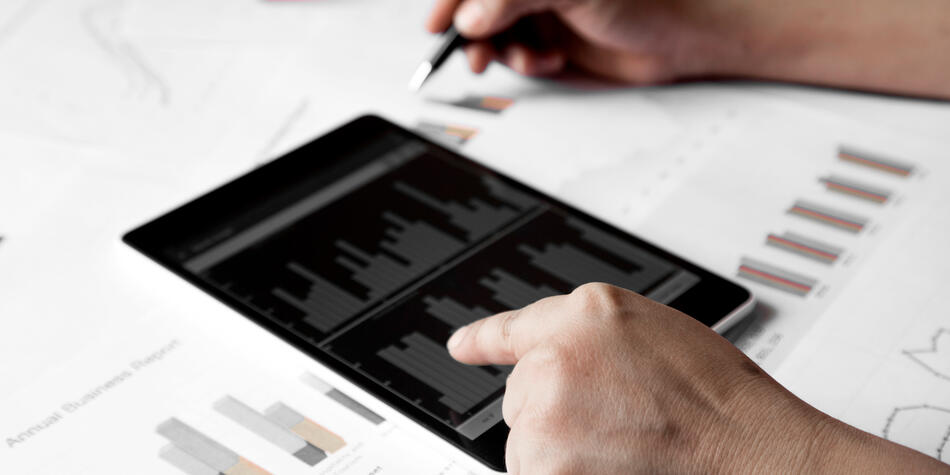As organisations work to gain a competitive advantage with data, business analysts – or business analytics translators – are in high demand. In fact, demand currently exceeds supply for new Australian graduates and job growth is projected to rise by 22.3% by 2026.*
Keen to harness the power of big data to guide decision-making in business and beyond? Deakin’s Master of Business Analytics and Bachelor of Business Analytics – the only course of its kind in Victoria – teach the practical and theoretical skills you need to launch a dynamic career in a competitive, global world increasingly ruled by data.
What you can learn from business analytics
Business analytics translators manage vast quantities of data held by organisations to improve their processes and workflows and innovate their products or services. To ensure graduates have the skills employers need, Deakin’s students engage with practical projects and gain exposure to industry-specific tools like SAS, Tableau and Python.
The Bachelor of Business Analytics includes eight units that teach eight different approaches to analytics to prepare students for versatile careers in diverse industries, including transport, energy, health and finance. ‘We teach students a range of tools and approaches, which they can apply in different industries,’ says Dr Kristijan Mirkovski, senior lecturer in the Department of Information Systems and Business Analytics.
In the Master of Business Analytics, all units are a mix of theory and practice, says Dr Ali Tamaddoni, Associate Professor in the Department of Marketing. ‘We have real cases in our units and assignments, and in many of our units we bring in industry lecturers,’ he says.
Mark Weinman, a recent graduate of Deakin’s Master of Business Analytics, says the opportunity to connect with industry lecturers was a highlight of the course. ‘It was an advantage in terms of developing networks and also understanding how what we learned in the course is implemented in industry,’ he says.
Graduate work-ready
Weinman says practical exposure to a range of business analytics tools means students learn how to apply their skills in real-world settings and are better prepared for graduate employment.
‘In developing models, you get to understand the technical limitations of the systems, which you otherwise wouldn't if you weren't doing practical components,’ he says. ‘When you go into a company that uses a particular software, you know what the limitations are, which helps you get a better job.’
Both courses offer a capstone unit in the final year, where students work on real-world business problems with industry partners like PwC, BP, World Vision and Epworth Health. ‘We have a client, a business problem and a data set, and students need to solve the business problem,’ Dr Tamaddoni says. ‘We work with big global and Australian companies to solve business problems.’
Balancing hard and soft skills
Do you need to be a maths or computer whiz to study business analytics? The short answer is no. Business analytics is less about hardcore technical aptitude – especially compared to something like data science – and more about generating real-world insights from large bodies of data.
Crucially, being able to communicate the business impact of data with stakeholders is just as important as actually analysing the data. Dr Mirkovsli says business analytics translators need sound presentation and persuasion skills. ‘Students need to have technical skills, but the key focus is interpretation of the data and how you apply the insights from the data to the business strategy,’ he says.
As such, you’ll learn both hard and soft skills at Deakin. ‘At the start you don't need to know anything about statistics, mathematics or computer programming,’ Dr Tamaddoni says. ‘We've designed the course in a way that basically anyone with any background can start the course. You should have an appetite for numbers, but you don't have to be an expert – we’ll teach you what you need to know.
‘When it comes to communication skills, we teach students how to present and how to tell a story once you have your findings. We teach you to communicate your findings in clear language to the sorts of stakeholders you’ll be working with in the future.’
Footnotes
* National Skills Commission, Employment Projections for information and organisation professionals, 2021

